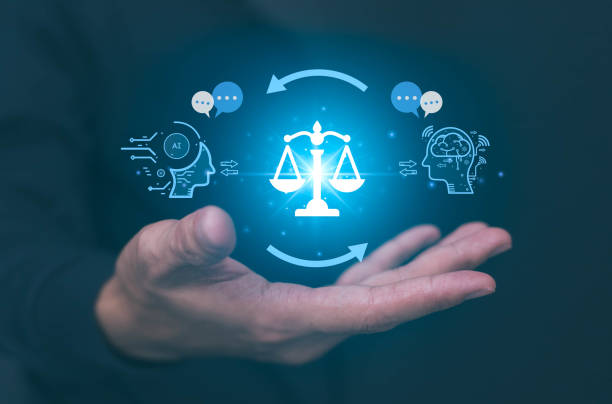As technology continues to advance and permeate every aspect of our lives, issues of tech ethics and privacy have become increasingly critical. From data breaches to ethical dilemmas surrounding artificial intelligence, understanding and addressing these concerns is essential for ensuring that technology serves humanity in a responsible and equitable manner. This article explores the key concepts of tech ethics and privacy, their implications, challenges, and strategies for addressing these issues.

Understanding Tech Ethics
Tech Ethics refers to the moral principles and standards that guide the development and use of technology. It encompasses various aspects, including:
- Data Privacy: The protection of personal information collected, stored, and processed by digital systems. Data privacy concerns focus on how data is used, shared, and safeguarded against unauthorized access.
- Algorithmic Fairness: The ethical considerations related to algorithms and automated decision-making systems. Ensuring that algorithms operate fairly and without bias is crucial to prevent discrimination and promote equity.
- Transparency: The openness and clarity with which technology companies disclose their practices, policies, and decision-making processes. Transparency fosters trust and accountability in technology development.
- Consent: The principle that individuals should have control over their personal data and be informed about how it is collected, used, and shared. Informed consent is a fundamental aspect of respecting user autonomy.
- Accountability: The responsibility of technology companies and developers to address and rectify ethical issues that arise from their products and services. Accountability involves taking responsibility for the impact of technology on society.
Privacy in the Digital Age
Privacy in the digital age refers to the right of individuals to control their personal information and to be free from unwarranted surveillance or intrusion. Key aspects of digital privacy include:
- Data Collection: The gathering of personal information through various means, such as online activities, social media, and IoT devices. Understanding what data is collected and for what purposes is essential for safeguarding privacy.
- Data Security: The measures taken to protect personal data from unauthorized access, breaches, and cyberattacks. Data security involves implementing encryption, access controls, and regular security audits.
- User Control: The ability of individuals to manage their privacy settings, such as opting out of data collection or adjusting permissions for applications. Empowering users with control over their data is vital for protecting privacy.
- Data Sharing: The practice of sharing personal information with third parties, such as advertisers, service providers, or business partners. Transparency about data sharing practices is crucial for maintaining user trust.
- Legal Frameworks: Laws and regulations that govern data privacy and protection, such as the General Data Protection Regulation (GDPR) in the European Union and the California Consumer Privacy Act (CCPA) in the United States. These frameworks establish standards for data handling and enforcement.

Ethical Implications of Emerging Technologies
- Artificial Intelligence (AI):
- Bias and Discrimination: AI systems can perpetuate existing biases if not carefully designed and monitored. Ensuring fairness and mitigating bias in AI algorithms is a key ethical challenge.
- Surveillance: AI-powered surveillance technologies raise concerns about privacy and civil liberties. Balancing security needs with individual rights is a critical consideration.
- Big Data:
- Data Monetization: The use of big data for commercial purposes, such as targeted advertising, can impact privacy. Ethical considerations include the transparency of data usage and the protection of user information.
- Predictive Analytics: The use of data to predict behavior or trends raises concerns about privacy and consent. Ensuring that predictive analytics are used responsibly is essential.
- Internet of Things (IoT):
- Data Collection and Sharing: IoT devices collect vast amounts of personal data, often with limited user control. Addressing privacy concerns involves securing data and providing users with clear information about data practices.
- Security Vulnerabilities: IoT devices can be susceptible to cyberattacks, leading to potential privacy breaches. Ensuring robust security measures is crucial for protecting user data.
- Social Media:
- Content Moderation: The ethical implications of moderating content on social media platforms include balancing free speech with preventing harm and misinformation. Ensuring transparency and fairness in content moderation practices is important.
- User Manipulation: The use of algorithms to influence user behavior or opinions raises ethical concerns. Addressing manipulation and ensuring user autonomy are key considerations.
Challenges in Tech Ethics and Privacy
- Rapid Technological Change:
- Keeping Up: The fast pace of technological advancements can outstrip the development of ethical guidelines and privacy protections. Ensuring that ethical standards evolve alongside technology is a challenge.
- Global Variation in Standards:
- Cultural Differences: Different regions and cultures have varying perspectives on privacy and ethics. Navigating these differences and establishing global standards can be complex.
- Data Ownership:
- Ownership Disputes: Determining who owns and controls personal data can be contentious. Clarifying data ownership and rights is essential for protecting privacy.
- Ethical Dilemmas:
- Balancing Competing Interests: Technology often involves balancing competing interests, such as security and privacy or innovation and ethics. Navigating these dilemmas requires careful consideration and ethical reasoning.
- Accountability and Enforcement:
- Holding Entities Accountable: Ensuring that technology companies and developers are held accountable for ethical breaches and privacy violations can be challenging. Effective enforcement mechanisms and penalties are necessary for compliance.

Strategies for Addressing Tech Ethics and Privacy
- Ethical Design Principles:
- Incorporate Ethics Early: Integrate ethical considerations into the design and development process from the outset. This includes assessing potential impacts, biases, and privacy concerns.
- Transparency and Communication:
- Clear Policies: Provide clear and accessible information about data collection, usage, and sharing practices. Transparent communication fosters trust and informed consent.
- User Empowerment:
- Control and Choice: Empower users with control over their data and privacy settings. Providing options for opting out or adjusting permissions enhances user autonomy.
- Regular Audits and Reviews:
- Ongoing Evaluation: Conduct regular audits and reviews of technology systems to assess compliance with ethical standards and privacy regulations. Address any issues promptly.
- Education and Awareness:
- Training and Resources: Educate developers, organizations, and users about ethical practices and privacy protections. Providing resources and training helps promote responsible technology use.
Future Outlook
- Advancements in Privacy Technology:
- Privacy-Enhancing Technologies: Emerging technologies, such as blockchain and advanced encryption methods, will offer new ways to protect privacy and enhance data security.
- Ethical AI Development:
- Bias Mitigation: Ongoing research and development will focus on reducing bias in AI systems and ensuring fairness in algorithmic decision-making.
- Global Privacy Standards:
- Harmonization: Efforts to establish global privacy standards and frameworks will address international differences and promote consistent privacy protections.
- Public Awareness and Advocacy:
- Increased Advocacy: Growing public awareness and advocacy will drive demand for stronger privacy protections and ethical technology practices.
- Regulatory Evolution:
- Updated Regulations: As technology evolves, regulatory frameworks will continue to adapt to address emerging challenges and ensure that privacy and ethical standards are upheld.
Conclusion
Tech ethics and privacy are critical considerations in the digital age, where technology impacts nearly every facet of our lives. Addressing these concerns requires a multifaceted approach that includes ethical design, transparency, user empowerment, and ongoing evaluation. By navigating the challenges and implementing effective strategies, we can ensure that technology serves humanity in a responsible and equitable manner. As technology continues to advance, ongoing dialogue, research, and collaboration will be essential for shaping a future that balances innovation with ethical considerations and privacy protections.

